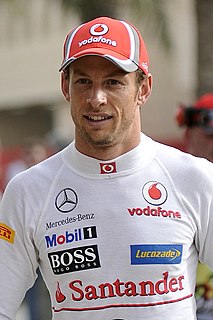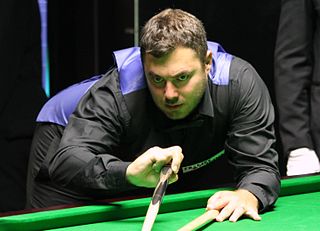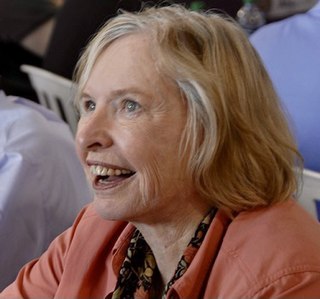A Quote by Budd Schulberg
Living with a conscience is like driving with the brakes on.
Quote Topics
Related Quotes
To understand the intensity of driving an F1 car, you have to be in it. When you're driving a 750hp machine at 320km/h, the noise and the vibrations are incredible. The G-force when you take big corners is like someone trying to rip your head off. You hit the brakes, and it feels as if the skin is being pulled off your body.
To understand the intensity of driving an F1 car, you have to be in it. When you're driving a 750hp machine at 200mph, the noise and the vibrations are incredible. The G-force when you take big corners is like someone trying to rip your head off. You hit the brakes, and it feels as if the skin is being pulled off your body.
It's well documented that stop-and-go traffic wears more on a vehicle than consistent-speed highway driving. No matter our driving habits, we all know we must regularly maintain our car's vitals - oil, tires, brakes, etc. Similarly, our brains and bodies perform best with a mindful focus on tasks and a routine maintenance of healthy habits.
You know, in some ways conducting is counter-intuitive. It's like winter driving in Finland - if you skid, the natural reaction is to fight with the wheel and jam on the brakes, which is the quickest way to get killed. What you have to do is let go, and the car will right itself. It's the same when an orchestra loses its ensemble. You have to resist the temptation to semaphore, and let the orchestra find its own way back to the pulse.
Although there is nothing so bad for conscience as trifling, there is nothing so good for conscience as trifles. Its certain discipline and development are related to the smallest things. Conscience, like gravitation, takes hold of atoms. Nothing is morally indifferent. Conscience must reign in manners as well as morals, in amusements as well as work. He only who is "faithful in that which is least" is dependable in all the world.
I love driving through Western Massachusetts, out through the Berkshires, when the road is empty and it's a nice day. I don't like driving home on Memorial Drive at 5:45 or 6:45 at night when it's crowded and stressful. I think that's true of most people, and the goal of automated driving is to take the stressful part of driving out of the task.





































